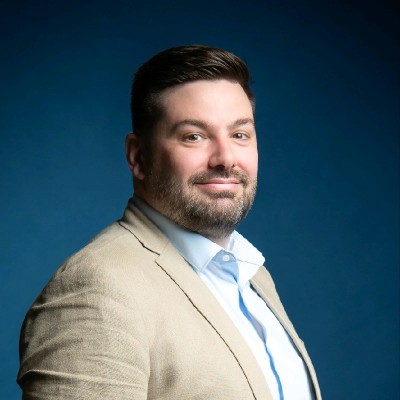
Spotlight: Murad S. Mirza
Tell us about your professional journey in the Middle East and how has it enriched you professionally?
My first engagement in the Middle East was as a tourist to Dubai in 2004. I enjoyed the hospitality of a vibrant community that was in love with its nomadic past, captivated with the rapidly evolving landscape in the present, and thrilled with the possibilities of a promising Digital future. The magnetism of living and contributing to the growth and development of a place that galvanized dreams to become reality attracted me in 2011 to make UAE as a regional hub for my consulting/advising services, especially, within the realm of Organizational Development, Talent Management, and Business Transformation. In addition to serving global clients, I have had the pleasure of being a Speaker and Moderator at various regional and global professional forums held in Dubai and become a published author for various prestigious publications across the world.
Additionally, I have been truly humbled and delighted to be globally recognized in 9 areas (HR, Leadership, Culture, Management, Agility, Innovation, Future of Work, Change Management, Customer Experience) by the world’s first open platform for Thought Leaders (https://www.thinkers360.com/about/) based in the USA that uses Artificial Intelligence (AI) for ranking to preclude human bias. My insights/articles/perspectives have been added to the libraries of premier institutions across the world (e.g., United Nations, European Union, World Bank Group, International Monetary Fund (IMF), Harvard, MIT, Oxford, Cambridge, Princeton, Berkeley, Cornell, Stanford, Columbia, INSEAD, United States Military Academy West Point, United States Marine Corps, United States Naval Academy, California State Library, The National Library of Australia, Canadian Parliament Library, Royal Danish Library, National Library of Finland, etc.).
How does your inner voice drive you to excel in your profession?
The average life of organizations used to be 60 years in the 1950s; it is less than 20 years in the Digital Age. This presents tremendous challenges and wonderful opportunities for innovation. Whether you listen to the ‘Prophets of Doom’ or the ‘Prophets of Nirvana’, the key to staying relevant and competitive in the Digital Age is to keep evolving. Therefore, maintain the momentum to ‘outdo’ yourself by timely replenishing hybrid skills through honest introspection, keen sense of dynamics in the relevant ecosystem, brazen propensity for self-improvement, and timely pivoting to growth opportunities to increase the value of your indispensability for discerning employers. You’re the ‘true’ master of your future!
What is the frequently overlooked factor in an organization’s poor performance?
There is no greater debt on an organization’s conscience than underutilized talent
What is the biggest challenge for successful corporate entities in the Middle East?
Mediocrity often reigns as ‘excellence’ in organizations used to prospering in the absence of worthy competitors
What are the critical competencies needed for organizations to stay relevant and competitive in the ubiquitous Digital future?
a) Being comfortable with being uncomfortable
Refers to effectively embracing foreseeable changes/unanticipated scenarios/disruptive chaos
b) Being uncomfortable with being comfortable
Refers to effectively overcoming intoxicating complacency from dominant market positions/stakeholder contentment/goal attainment
What issues will be top-of-mind for C-levels with regard to the future of work over the next three years?
Senior leadership will be grappling with three key issues pertaining to the future of work over the next three years for their organizations to remain relevant and competitive in the rapidly evolving Digital Age. First, how to retain the ‘right mix’ of a motivated and engaged multigenerational workforce while being continuously lured by the transformative promise of AI-enabled technologies. Second, overcoming the dilemma of which emerging/new roles to incorporate within the corporate hierarchy and which existing ones to depreciate/eliminate to ensure/assure an agile organization. Third, how to design/develop/sustain a productive workplace that also caters to employee health and well-being effectively.
Where do you anticipate leading enterprises will be in their future of work journeys over the next three years?
The progress on the future of work initiatives in three years will vary from sector to sector, especially, due to the fluctuating levels of the ‘nagging effect’ of the disruptive influencers. Generally, leading enterprises with a bullish agenda will significantly refine/redefine organizational structures/meanings, aggressively revamp/reengineer work processes to robustly align with strategic imperatives by weeding out underperforming functions with AI-driven solutions and achieve a visibly leaner and a highly capable workforce with a proliferation of hybrid skills.
Murad’s LinkedIn profile is available at: https://www.linkedin.com/in/muradsalmanmirza/

 EN
EN AR
AR HI
HI ES
ES FR
FR DE
DE











